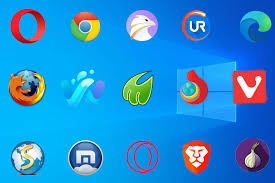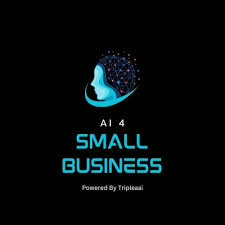Maxthon
Maxthon is a versatile web browser that is particularly suitable for small businesses. It offers various features that enhance productivity and collaboration.
Pros: One of Maxthon’s key advantages is its compatibility across multiple operating systems, including Windows, Mac, Android, and iOS. This cross-platform capability ensures that employees can access crucial information and tools regardless of their device preferences. Additionally, Maxthon includes built-in cloud sync functionalities, allowing users to share bookmarks and settings seamlessly among different devices.
Another benefit is its lightweight design, which promotes faster loading times and improved performance—an essential factor for small businesses with limited resources. Furthermore, Maxthon offers enhanced privacy features such as ad-blocking and browsing in incognito mode, helping to protect sensitive company data.
Cons: On the other hand, some drawbacks may warrant consideration. The user interface can be less intuitive than more established browsers, potentially leading to a steeper learning curve for new users. Additionally, while security features are present, they may not be as robust as those found in larger competitors like Chrome or Firefox.

Overall, while Maxthon presents several compelling attributes for small business use—including cross-platform functionality and speed—decision-makers should weigh these against the potential challenges related to usability and security.
Maxthon is a versatile web browser tailored to small businesses. Its multifunctional capabilities enhance productivity and collaboration among team members.
One of Maxthon’s significant advantages is its user-friendly interface, which simplifies navigation and allows users to focus on their tasks without unnecessary distractions. Additionally, it includes built-in tools such as ad blockers and tab management features, helping businesses streamline their online activities.
Moreover, Maxthon supports cloud syncing, enabling users to access bookmarks and settings from any device. This feature promotes flexibility and ensures that critical resources are always at hand.
However, there are some drawbacks to consider. For instance, while Maxthon offers several unique features, its market share remains lower than that of more established browsers. This may result in fewer third-party extensions or compatibility issues with certain websites.
Maxthon presents a compelling option for small businesses seeking an efficient browsing solution. Its blend of practical features can significantly enhance workflow, although potential users should weigh the pros and cons before making a decision.

Google Chrome
Google Chrome is a high-performance, free web browser specifically designed for today’s dynamic internet landscape. Its speed and efficiency make it a preferred choice for users seeking seamless browsing experiences.
Determining the right browser often involves evaluating various factors, including speed, security features, and overall user experience. Google Chrome excels in these areas, providing robust protection against malware and phishing attacks while offering quick page loading times.
When evaluating different browsers, several factors come into play, such as speed, security features, and overall user experience. Google Chrome excels in these domains, consistently delivering quick page loading times that enhance productivity.
In terms of security, Chrome provides robust protection against malware and phishing attacks. Its built-in safety measures actively warn users about potentially harmful websites and downloads.
The browser caters to a diverse range of users, from individual consumers to software engineers and developers across multiple industries. It serves as an essential tool within the Information Technology and Services sector, emphasising its utility in both small businesses (42% market segment) and mid-market enterprises (37% market segment).
With continuous updates and innovative features, Google Chrome remains at the forefront of web browsing technology. Its commitment to enhancing user productivity and online safety solidifies its position as a leading choice in the crowded marketplace of web browsers.
When evaluating Google Chrome’s pros and cons, several factors are considered based on user feedback and performance metrics.
Pros: One of Chrome’s most significant advantages is its ease of use, which received a high rating of 96. Users appreciate its intuitive design that facilitates seamless navigation. Additionally, the integration with Google services scored 71, allowing users to easily access tools like Drive, Gmail, and Calendar directly from the browser.
Chrome extensions also contribute positively to its functionality, earning a score of 68. These add-ons enhance customisation and productivity by providing a wide range of tools tailored to users’ needs. Furthermore, the user-friendly interface and clean layout both rated highly at 44 points each, reflecting Chrome’s focus on accessibility and simplicity.

Cons: However, Chrome does present certain drawbacks. A notable concern is its high RAM usage (45), which can lead to slower performance in devices with limited memory capability (38). Data privacy issues rank at 35; many users express apprehension about how Google handles their data. Additionally, general memory consumption is also viewed unfavourably (31), as extensive resource use can hinder multitasking capabilities on weaker hardware setups.
These pros and cons highlight both the strengths and weaknesses inherent in using Google Chrome, enabling potential users to make informed decisions regarding their web browsing experience.
Brave
Various factors come into play when evaluating the Brave browser’s pros and cons. The advantages are largely determined by user feedback and analytical metrics that quantify performance across several categories.
Among the key pros, ad blocking stands out with a score of 217, reflecting its robust capability to eliminate unwanted ads. This feature not only enhances the user’s browsing experience but also increases page load speeds. Additionally, ease of use is rated at 168, indicating that users find Brave’s interface intuitive and straightforward.

Privacy is another significant advantage, earning a score of 148. Brave employs advanced privacy features that protect users from tracking and invasive data collection. Speed ranks highly as well, receiving a score of 89 due to its ability to deliver fast-loading web pages. Security follows closely behind with a score of 88, thanks to built-in protections against dangerous sites and phishing attempts.
However, there are notable cons to consider. Browser compatibility has garnered attention with a rating of 58; some websites may not perform optimally on Brave compared to more widely used browsers. There are also reported ad issues scored at 49, where certain legitimate ads may be inadvertently blocked, impacting user experience.
Extension issues (44) can arise due to limited support for some plugins commonly found in other browsers. Furthermore, slow performance (41) has been noted under specific conditions or on certain devices. Lastly, limited extensions (39) could deter users who rely heavily on browser add-ons for functionality. Overall, understanding these pros and cons aids potential users in making an informed choice about using the Brave browser.

Brave, as a browser, has received high ratings across various usability features, reflecting user satisfaction levels. The overall satisfaction score stands impressively at 9.5, indicating that users highly value their experience with the browser.
Brave scores an average of 8.9 in terms of ease of use. This suggests that new users find the interface intuitive and manageable, making it accessible to individuals with varying levels of tech-savvy.
When assessing the product’s effectiveness as a business partner, Brave averages 8.9 for its support in facilitating online operations. This rating highlights the reliability and performance users can expect when utilising Brave for professional purposes.
Conversely, its AI text generation capabilities have garnered a slightly lower average rating of 8.3, suggesting some room for improvement in this area. Furthermore, AI text-to-speech functionality displays an even more modest average of 7.9, indicating potential challenges or limitations that users may encounter.
Overall, while Brave excels in areas such as user satisfaction and ease of use, its AI functionalities have notable pros and cons that warrant consideration from potential users seeking comprehensive digital solutions.

Microsoft Edge
Microsoft Edge is a modern web browser designed to enhance productivity and streamline online experiences. It offers a user-friendly interface that allows for seamless searching directly from the address bar or through Cortana, Microsoft’s intelligent personal assistant.
One of Edge’s standout features is its Hub, a centralised location where users can easily access their favourites, reading lists, browsing history, and downloads. This organisation tool enhances efficiency by allowing users to find what they need quickly without navigating through multiple menus.
As with any software, Microsoft Edge has its pros and cons. On the positive side, it is optimised for speed and security, offering robust privacy settings and integrated tools. However, some users may find compatibility issues with certain websites or extensions compared to other popular browsers.
Overall, Microsoft Edge caters to various market segments within the Information Technology and Services industry—ranging from small businesses to large enterprises—providing tailored features suited to every need. Its focus on productivity makes it a compelling choice for both individual users and organisations looking to improve their online interactions.
When evaluating the pros and cons of Microsoft Edge, several factors emerge from user feedback and expert analysis. These attributes help determine the browser’s overall effectiveness and appeal.
Pros:
One of Microsoft Edge’s primary advantages is its integration with other Microsoft products. This feature allows for seamless syncing across various devices, enhancing productivity for users invested in the Microsoft ecosystem. Additionally, Edge is renowned for its speed, often outperforming competitors in loading times due to its optimised performance features.

Another highlight is the user interface, which is streamlined and visually appealing and can significantly enhance user experience. Furthermore, Edge offers robust ease of use, making it accessible for both novice and experienced users alike. Its overall efficiency also stands out, as it utilises system resources effectively to provide a smooth browsing experience.
Cons:
Conversely, Microsoft Edge has notable drawbacks. One significant concern is its limited library of extensions, which restricts customisation options compared to other browsers. Users may also encounter issues with browser compatibility, particularly when accessing certain websites that may need to be fully optimised for Edge.
Additionally, some users report instances of sluggish performance, especially when handling multiple tabs or resource-intensive applications. Other minor concerns include occasional feature issues and critiques surrounding its UI/UX design, which may appeal to only some preferences.
Overall, while Microsoft Edge presents numerous strengths that enhance user experience, it also has limitations that potential users should consider before making a choice.
